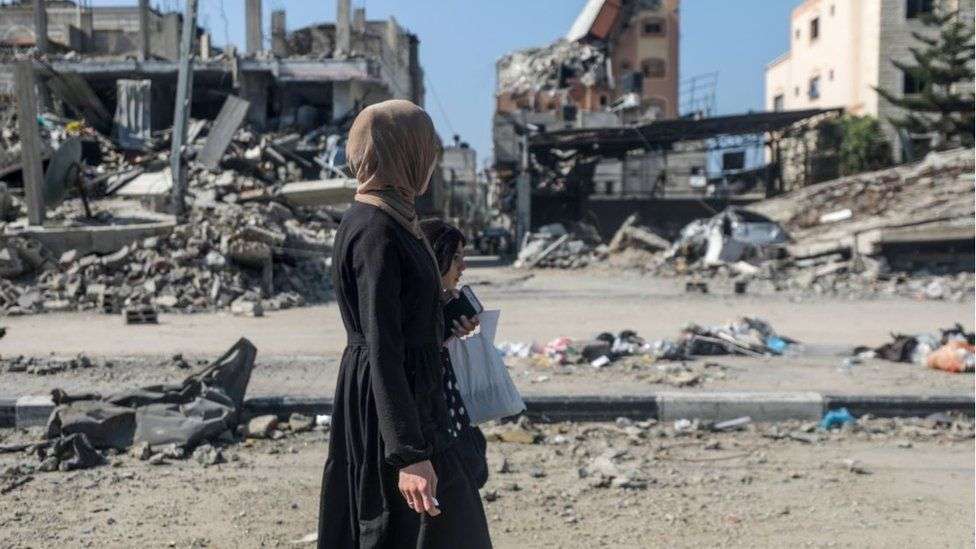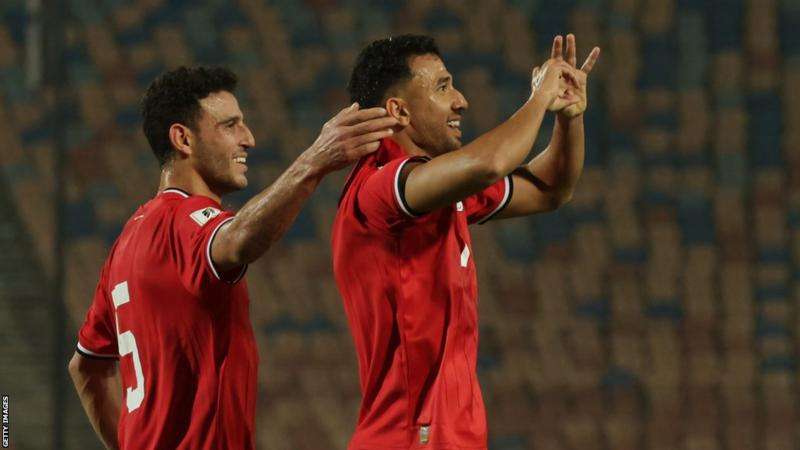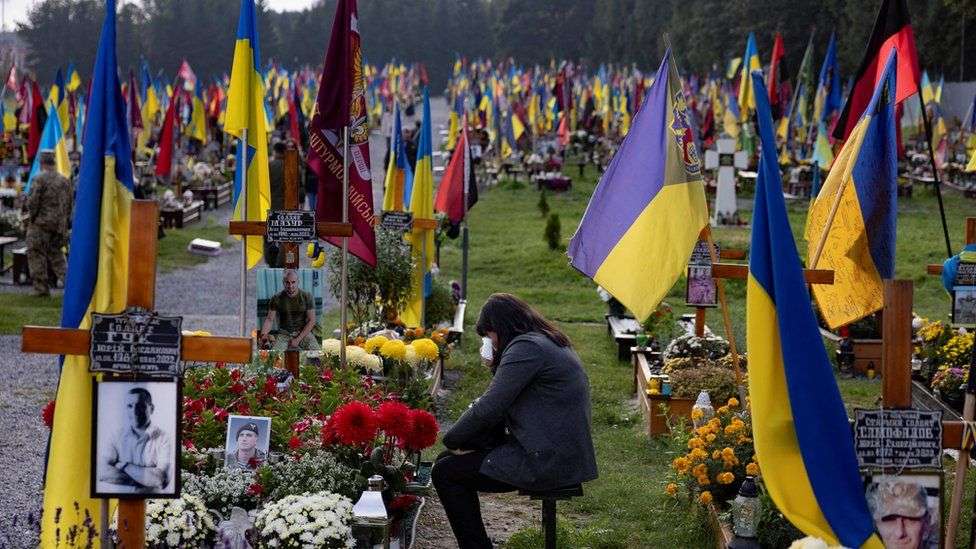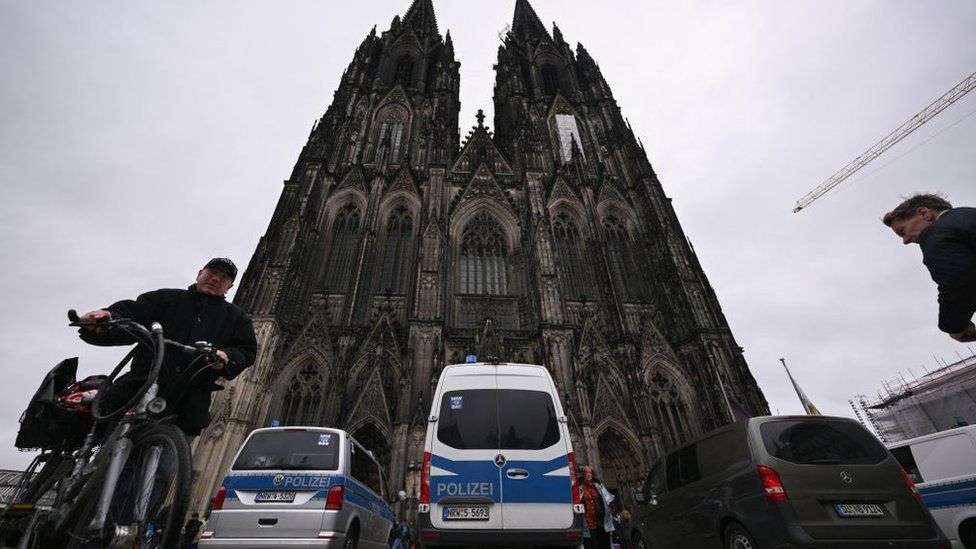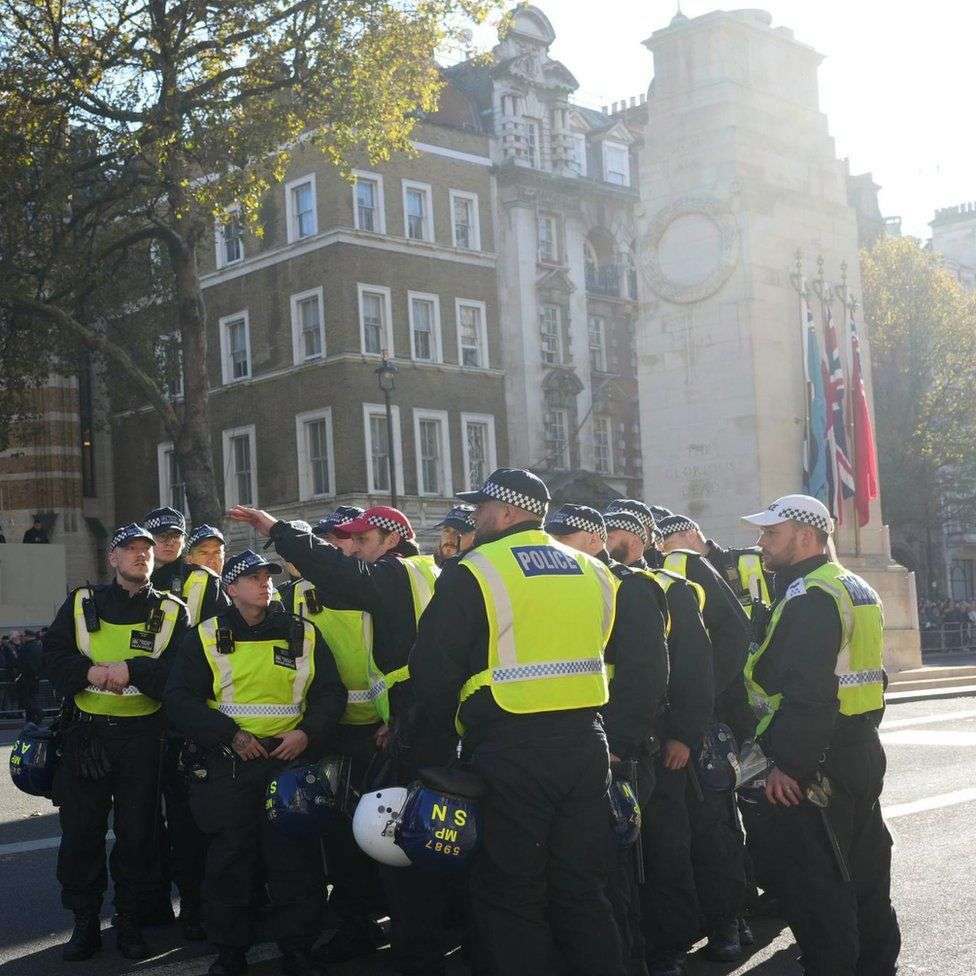At the Nova festival site in southern Israel, attacked by Hamas gunmen on 7 October, the families and friends of Israeli hostages began a long march to Jerusalem on Wednesday.
The festival site, near Kibbutz Re'im, is where hundreds of Israelis were killed and hundreds more dragged away into Gaza.
The marchers, carrying pictures of those still missing, are demanding that their government do more to bring the remaining 134 hostages home.
Their hopes have been raised by talk of a ceasefire.
"One hundred and forty-five endless days and nights of yearning for our loved ones," Ronen Neutra said, addressing the crowd.
Ronen's 22-year-old son, Omer, is somewhere in Gaza.
"We send them strength, and ask them to hold a little longer," Ronen said.
"Omer, just a little longer. A deal is possible."
Families of hostages on march towards Jerusalem
IMAGE SOURCE,EPA
Image caption,
The Israeli marchers say they will reach Jerusalem on Saturday
Since US, Egyptian and Qatari mediators met in Paris last weekend, the Israeli press has been full of talk of a deal to pause the fighting.
No document has been made public, outlining the latest proposals, but when Joe Biden said an agreement might be in place by Monday, speculation only increased.
But what might a deal look like?
It is thought a ceasefire could last for six weeks, during which time 40 Israeli hostages would gradually be released. Female civilians and soldiers would be freed first.
In return, around 400 Palestinian prisoners, some of them convicted of serious terrorist offences, would be released from Israeli jails.
Israeli soldiers might move away from some of Gaza's most populated areas, and some of the 1.8 million Palestinians displaced by the fighting since October might be able to return to homes in the north.
But with talks still going on in Qatar this week - where Egyptian and Qatari mediators are shuttling between Israeli and Hamas delegates - it is clear that most issues are still up in the air.
Reports suggest that there is still wrangling over the number of Palestinian prisoners released for each Israeli hostage.
Nor is there yet thought to be agreement on the redeployment of Israeli soldiers or the return of Palestinians to their homes.
But Haim Tomer, a former Mossad chief of division, with experience of previous negotiations, told me he was optimistic.
"I think that we are pretty close," he said.
"I'm not saying that for sure we will see the release of hostages and Palestinian prisoners. But I think that the negotiation is getting forward."
He cited comments by the Qatar-based leader of Hamas, Ismail Haniyeh, who gave the first oblique hint on Wednesday that the group might be softening its position on a deal.
"Any flexibility we are showing in the negotiations," he said in a televised address, "is to protect the blood of our people and to put an end to their huge pains and sacrifices in the brutal war of extermination against it."
Mr Haniyeh went on to say that Hamas was ready to keep fighting if necessary, and he urged Palestinians in the West Bank and Jerusalem to defy Israeli restrictions and march on Jerusalem's al-Aqsa mosque during the Muslim holy month of Ramadan.
What is Hamas and why is it fighting with Israel in Gaza?
Hamas hostages: Stories of the people taken from Israel
Tears of Gaza father who lost 103 relatives
The reference to "flexibility" indicated that Hamas might be reconsidering demands - a complete end to the fighting and the total withdrawal of Israeli troops from the Gaza Strip - which Israeli Prime Minister Benjamin Netanyahu has called "delusional."
But Hamas has yet to respond formally to the proposals drawn up in Paris.
It is also not known what Hamas's leader in Gaza, Yahya Sinwar, thinks about the deal.
He was last filmed in an underground tunnel, somewhere underneath Khan Yunis or Rafah.
His guerrilla army is slowly being annihilated above him and the Israeli government has vowed to capture him.
Israeli officials have suggested that Mr Sinwar's authority has been severely eroded by five-and-a-half months of crushing bombardment and the deaths of tens of thousands of his people.
Such reports are hard to verify, but one thing is certain - it is harder and harder to communicate with the man who launched the attacks of 7 October.
Meanwhile, the families and friends of the remaining hostages are on the road. They say they will reach Jerusalem on Saturday.
Will good news be waiting for them when they get there?


